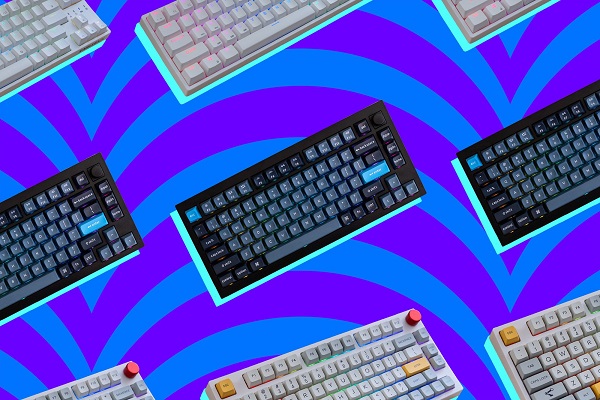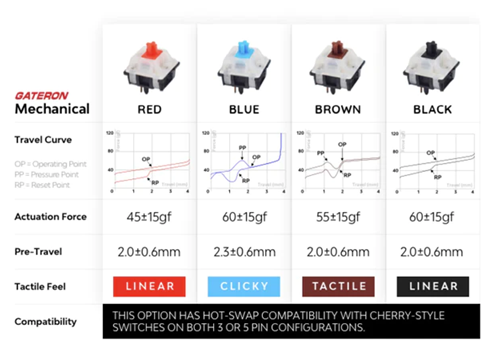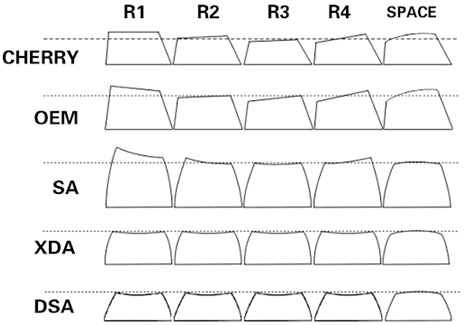Introduction
Mechanical keyboards have gained immense popularity among computer enthusiasts and gamers due to their durability, tactile feedback, and overall typing experience. When purchasing a mechanical keyboard, it's essential to consider various factors to ensure you choose the right one that meets your specific needs. In this article, we will explore the key factors to consider when purchasing a mechanical keyboard, providing you with valuable insights to make an informed decision.
Understanding Mechanical Keyboards
Before we delve into the factors, let's briefly understand what makes mechanical keyboards different from their membrane counterparts. Mechanical keyboards use individual mechanical switches beneath each key, while membrane keyboards rely on a single membrane layer for all keys. The mechanical switches provide a satisfying tactile feel, enhanced durability, and precise actuation points, making them preferred by professionals and gamers alike.
Factors to Consider When Purchasing a Mechanical Keyboard
1. Keyboard Size and Layout
The size and layout of a mechanical keyboard play a crucial role in its usability and compatibility with your workspace or gaming setup. Mechanical keyboards come in various sizes, including full-size 100%, tenkeyless 80% (TKL), compact (75% or 65% or 60%), and ultra-compact layouts (40%, 20%). Consider the available space, your typing style, and the specific keys you require for your work or gaming activities.
2. Switch Type
Mechanical keyboards offer different switch types, each with its unique characteristics. The most popular switch types include Cherry MX switches, Kailh switches, and Gateron switches. These switches vary in terms of actuation force, tactile feedback, and noise level. Determine your preferences for typing or gaming, such as linear, tactile, or clicky switches, and choose a keyboard that incorporates the switch type that suits your needs.
3. Actuation Force
Actuation force refers to the amount of pressure required to register a keystroke on a mechanical keyboard. It can significantly impact your typing or gaming experience. Some individuals prefer keyboards with lighter actuation force, allowing for faster typing, while others may prefer heavier switches for precise key presses. Consider your typing style and preferences when selecting the actuation force that suits you best.
4. Keycaps Material and Profile
Keycaps are an important aspect of mechanical keyboards, as they directly affect the feel and aesthetics. Keycaps can be made from various materials, including ABS plastic, PBT plastic, and even premium materials like dye-sub PBT. Additionally, keycaps come in different profiles, such as OEM, Cherry, and SA profiles. Choose keycaps that offer durability, comfortable typing, and a visual appeal that complements your keyboard.
Custom keycaps have revolutionized the world of keyboards by offering a personalized and visually appealing touch to our typing experience. With intricate designs and eye-catching visuals, custom keycaps have replaced the traditional plain-colored keycaps, allowing us to express our unique style and personality.
From sleek and minimalistic designs to vibrant and colorful illustrations, custom keycaps offer a wide range of options to suit different preferences and interests. They serve as a form of self-expression, allowing us to curate a keyboard that reflects our passions and showcases our individuality. The ease of installation and compatibility with various mechanical keyboards make custom keycaps accessible to anyone looking to add a touch of personalization to their keyboard setup.
5. Backlighting and Customization
Many mechanical keyboards feature backlighting options, allowing you to enhance visibility in dimly lit environments or add a touch of personalization. Consider whether you require single-color backlighting, RGB lighting with customizable effects, or even per-key illumination. Furthermore, look for keyboards that offer intuitive software or onboard controls for easy customization of lighting effects and macros.
6. Connectivity Options
Mechanical keyboards typically offer different connectivity options to suit various setups and devices. The most common options include USB, Bluetooth, and wireless connectivity. If you require a clutter-free workspace or the ability to connect to multiple devices simultaneously, consider keyboards with wireless capabilities. However, for gaming purposes, a wired USB connection is often preferred due to its stability and minimal latency.
7. Build Quality and Durability
Investing in a high-quality mechanical keyboard ensures its longevity and durability over time. Look for keyboards constructed with sturdy materials such as aluminum or high-quality plastic. Additionally, keyboards with reinforced PCBs and plate-mounted switches provide added durability and stability, making them suitable for heavy usage or intense gaming sessions.
8. Ergonomics and Comfort
Considering the amount of time spent typing or gaming, it's crucial to prioritize ergonomics and comfort when purchasing a mechanical keyboard. Look for keyboards with adjustable stands or wrist rests to promote a more comfortable typing posture and reduce the risk of repetitive strain injuries. Additionally, keyboards with a slight incline or curved key layouts can provide a more natural typing experience.
9. Compatibility and Software Support
Ensure the mechanical keyboard you choose is compatible with your operating system and devices. Most keyboards support major operating systems such as Windows, macOS, and Linux. Additionally, check if the keyboard offers software support or customization options, as it can enhance your overall user experience and allow you to tailor the keyboard to your specific needs.
10. Price and Value for Money
Consider your budget and determine the value you expect from your mechanical keyboard. While high-end keyboards may offer advanced features and premium build quality, there are also budget-friendly options that provide a satisfying typing or gaming experience. Strike a balance between your requirements, budget, and the overall value the keyboard offers.
Frequently Asked Questions (FAQs)
FAQ 1: Can I use a mechanical keyboard for typing-intensive tasks?
Yes, mechanical keyboards are well-suited for typing-intensive tasks. The tactile feedback and distinct actuation points of mechanical switches make typing more accurate and comfortable, especially during long typing sessions.
FAQ 2: Are mechanical keyboards suitable for gaming?
Absolutely! Mechanical keyboards are highly regarded among gamers due to their responsiveness, durability, and customization options. The precise actuation points and tactile feedback help gamers execute commands accurately and quickly.
FAQ 3: Do mechanical keyboards reduce typing fatigue?
Yes, mechanical keyboards can reduce typing fatigue. The tactile feedback and actuation force required by mechanical switches provide a satisfying typing experience and reduce the strain on your fingers and wrists.
FAQ 4: Are all mechanical switches loud?
No, not all mechanical switches are loud. While some switch types, such as clicky switches, produce audible click sounds, there are also silent or tactile switches available that offer a quieter typing experience.
FAQ 5: Can I replace the keycaps on a mechanical keyboard?
Yes, most mechanical keyboards allow you to replace the keycaps. This enables you to customize the look and feel of your keyboard according to your preferences. Just ensure the keycap set you choose is compatible with your keyboard's switch type.
FAQ 6: What is the average lifespan of a mechanical keyboard?
Mechanical keyboards are known for their durability, and the average lifespan can range from 10 to 20 years, depending on the usage and build quality of the keyboard. With proper care and maintenance, a mechanical keyboard can serve you for a long time.
Conclusion
When purchasing a mechanical keyboard, it's important to consider various factors to ensure it aligns with your preferences, typing style, and gaming needs. Factors such as keyboard size, switch type, actuation force, keycaps material, and customization options play a significant role in your overall experience. Additionally, prioritize comfort, ergonomics, and build quality for a keyboard that will withstand extensive usage. By carefully considering these factors, you can confidently select a mechanical keyboard that enhances your typing or gaming journey.







Thanks for sharing an informative blog and I am sure to tell that this is very important blog to all...solicitar el divorcio en nueva jersey
ReplyDelete